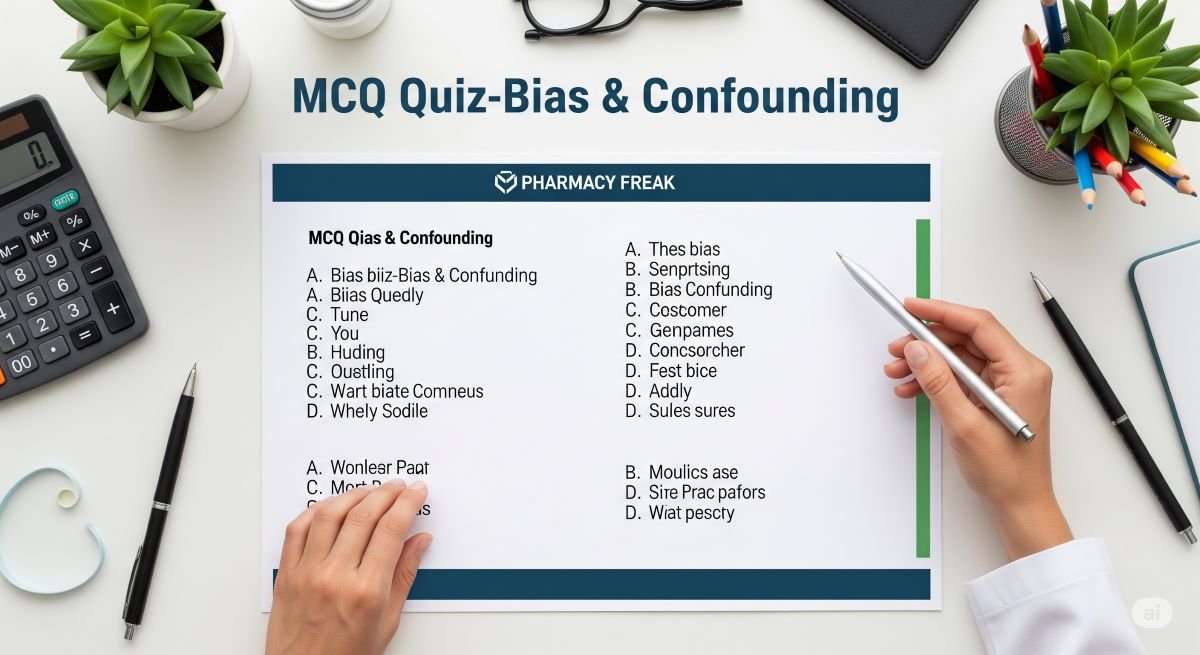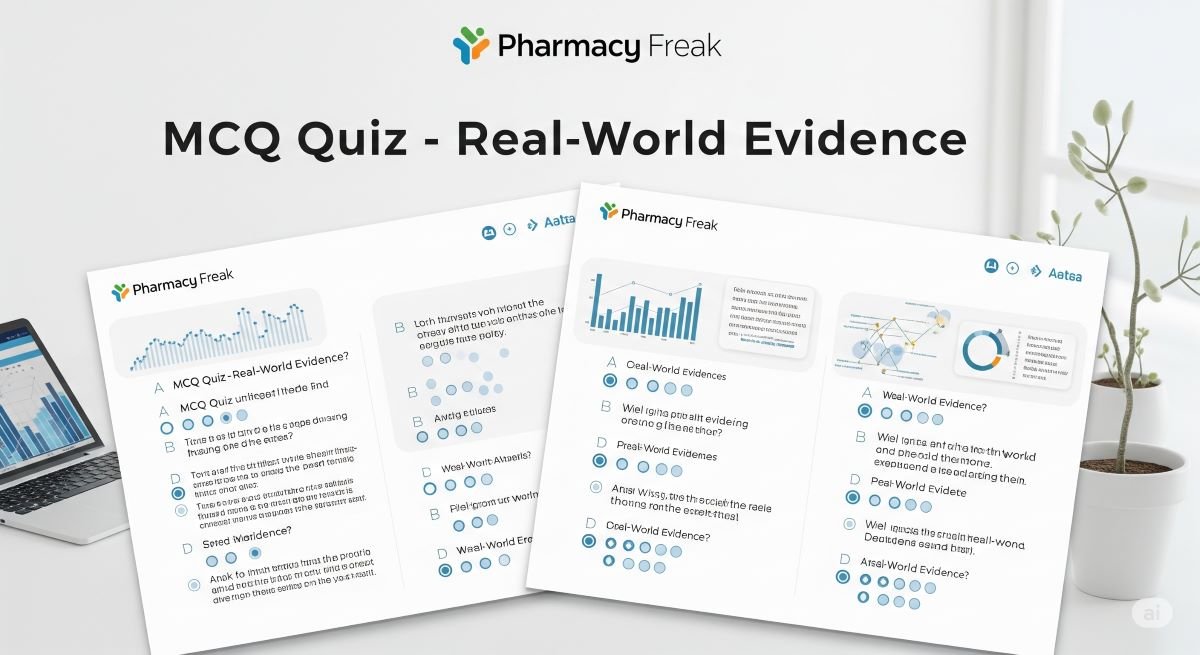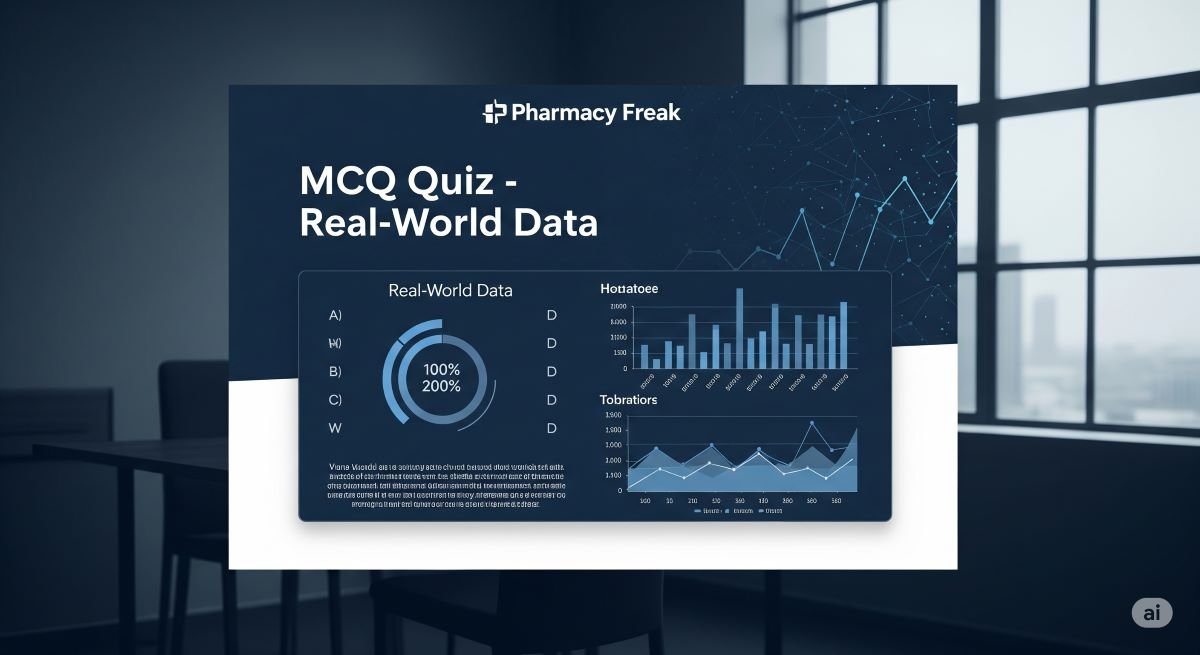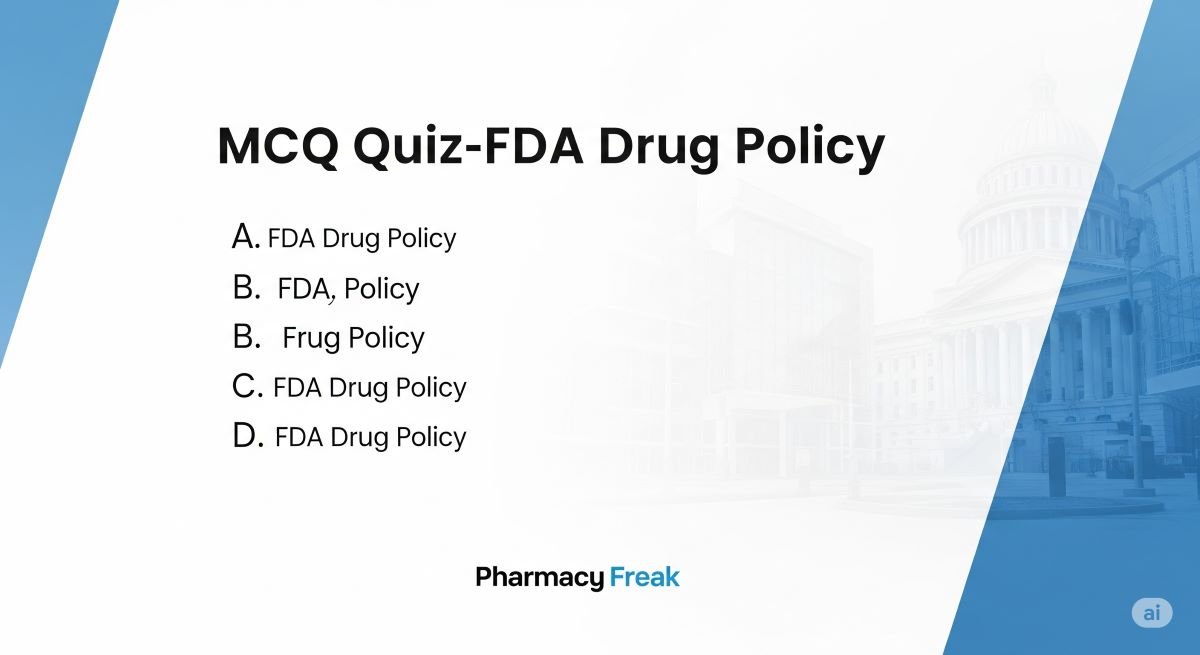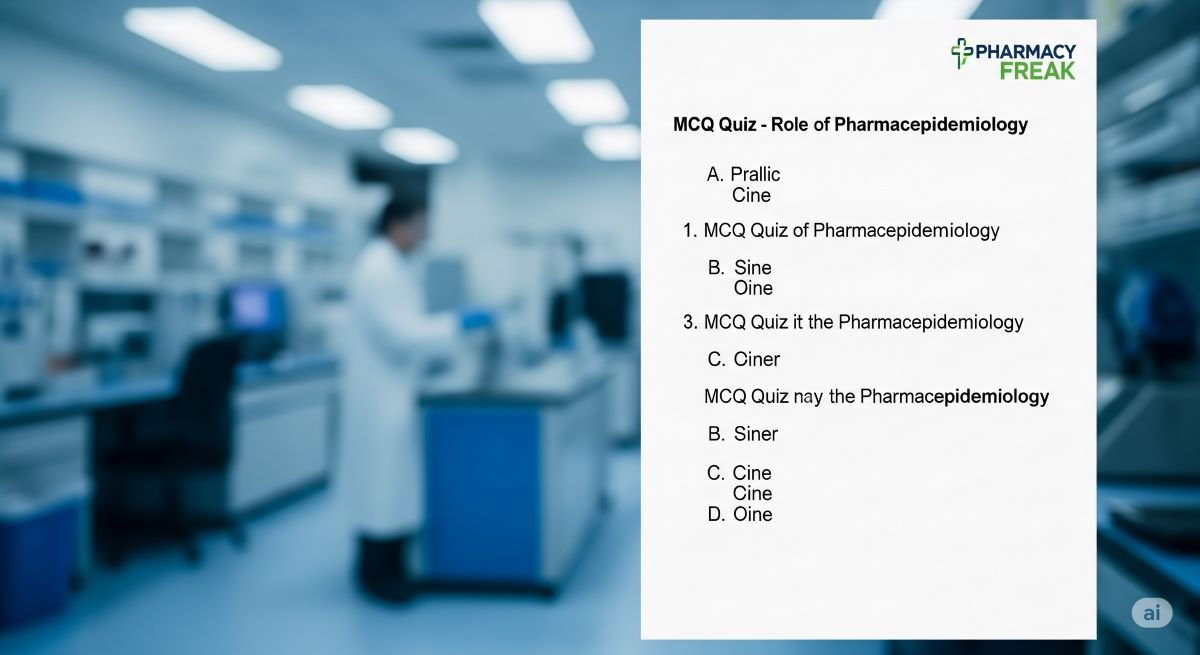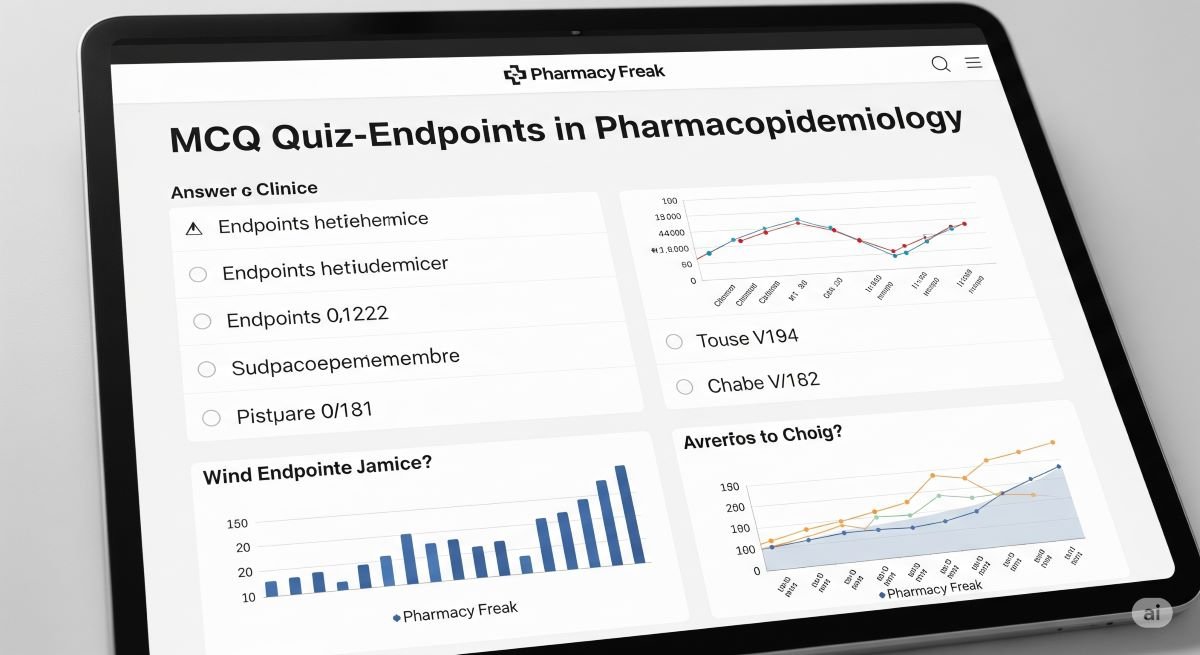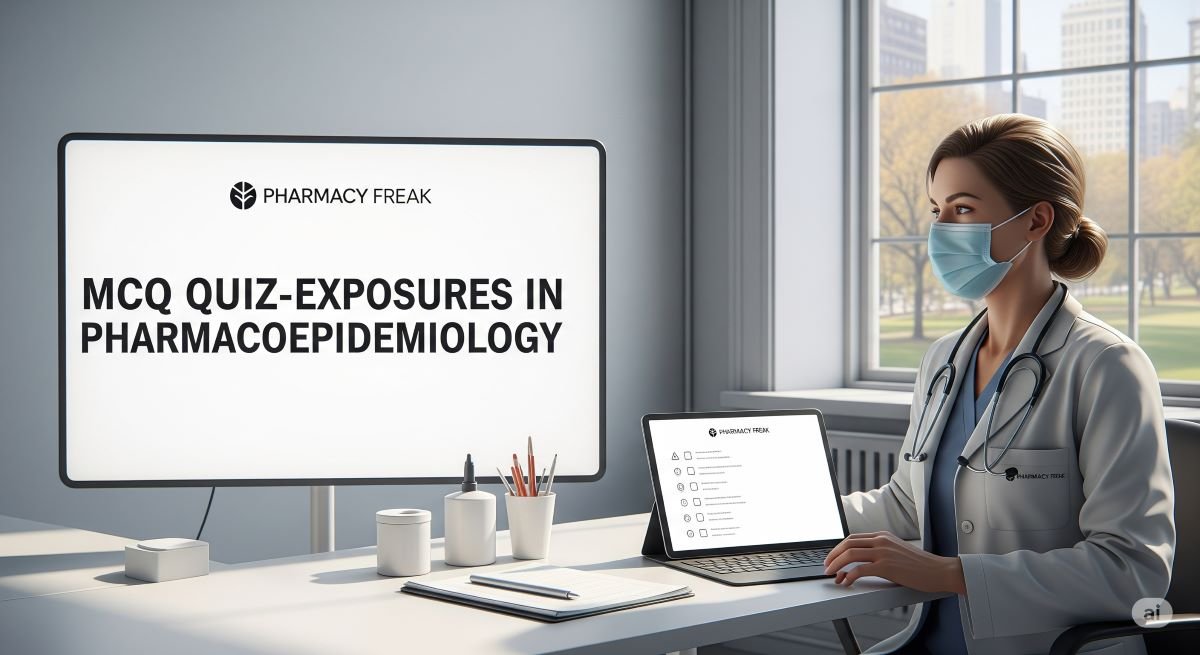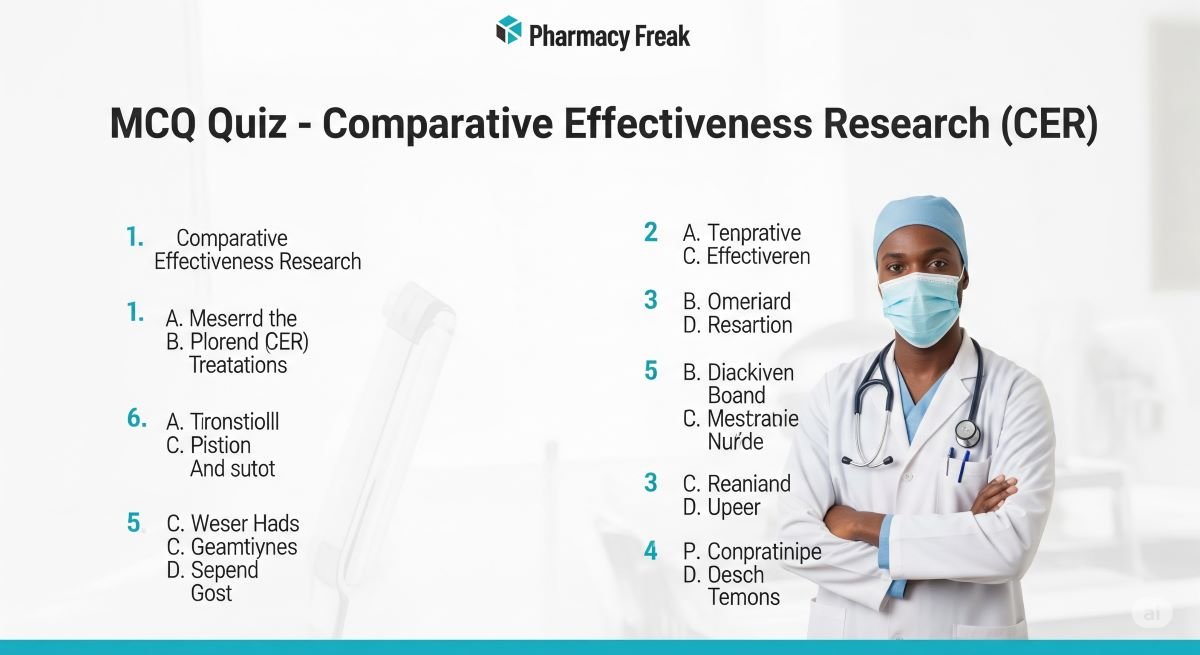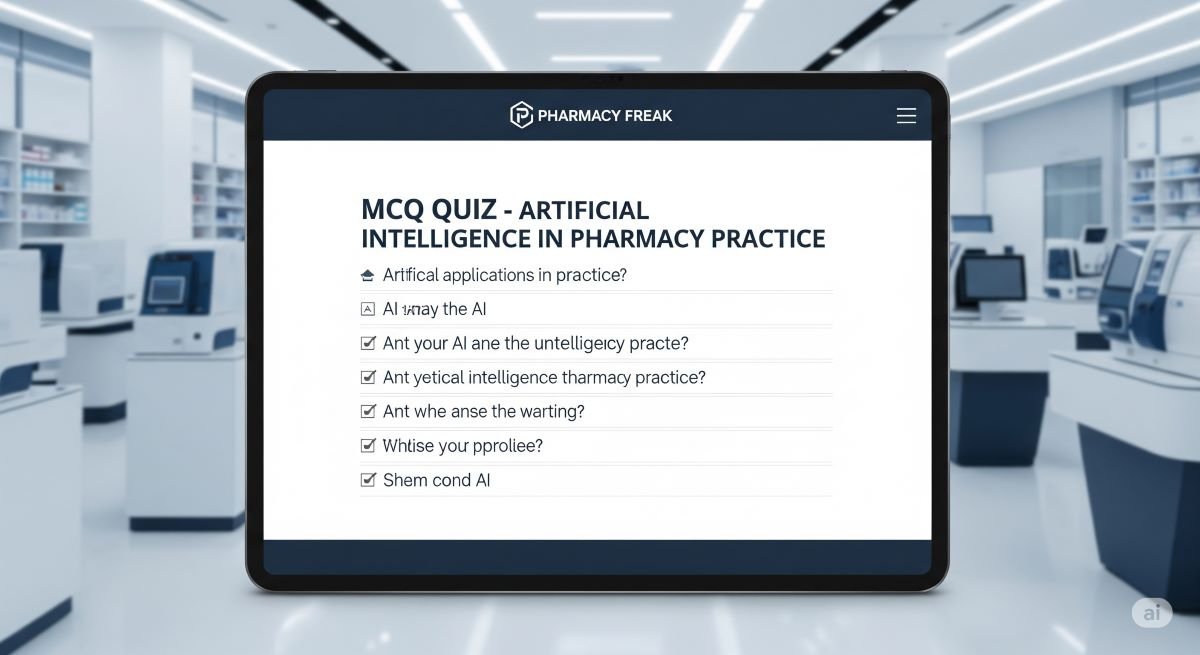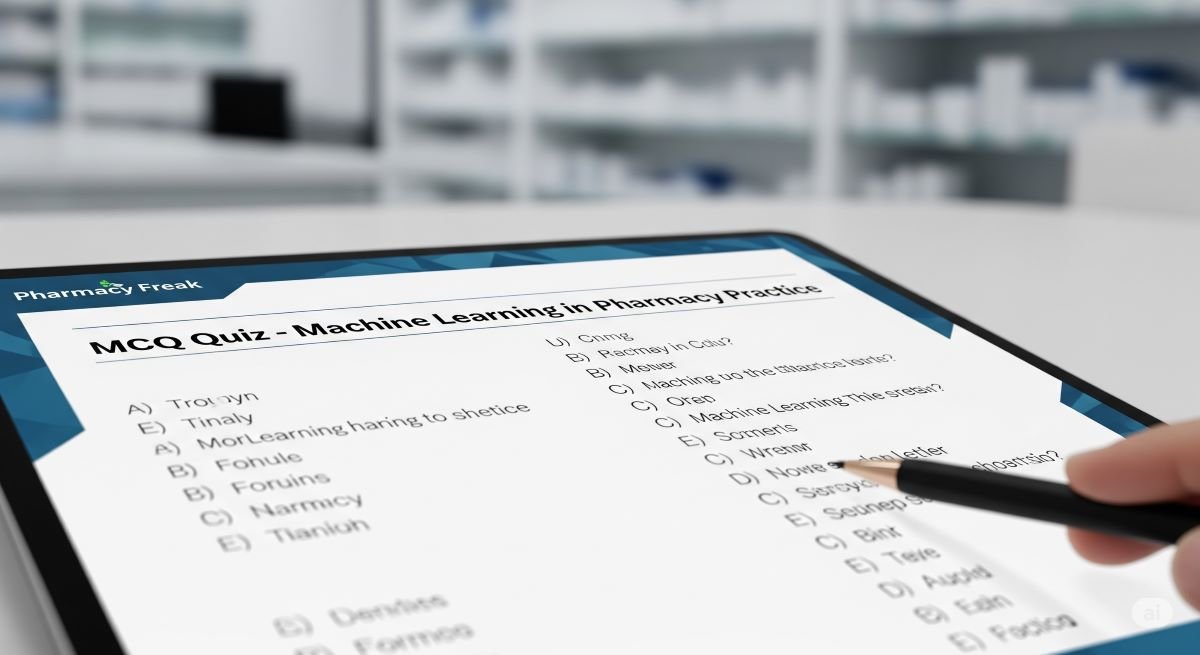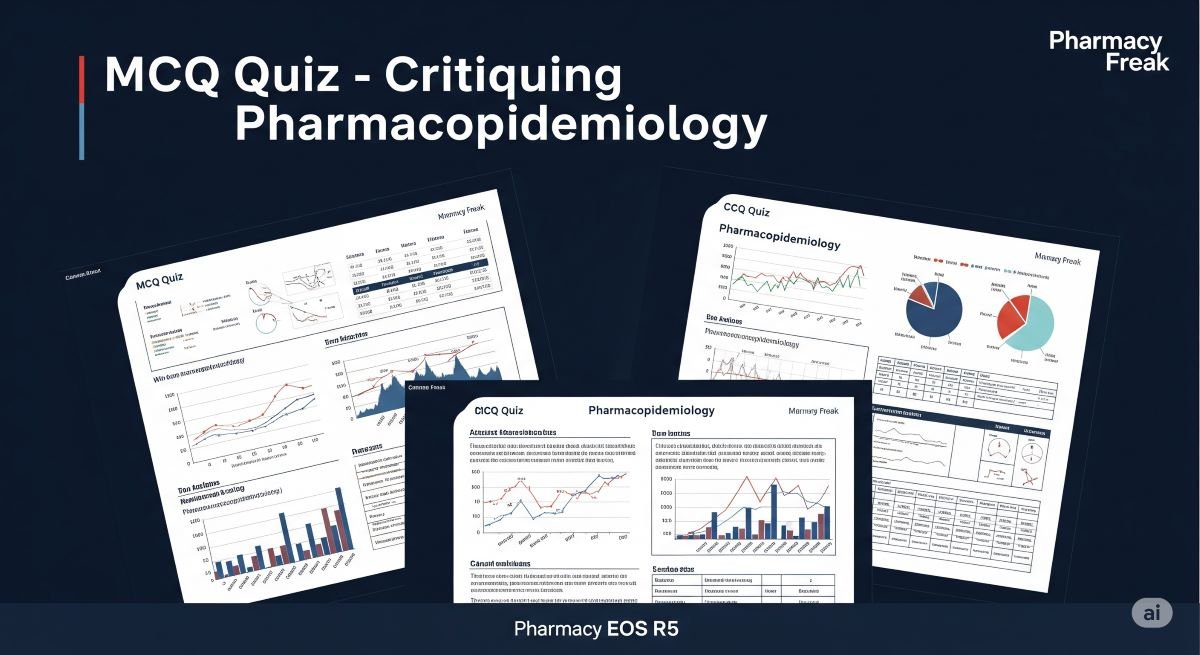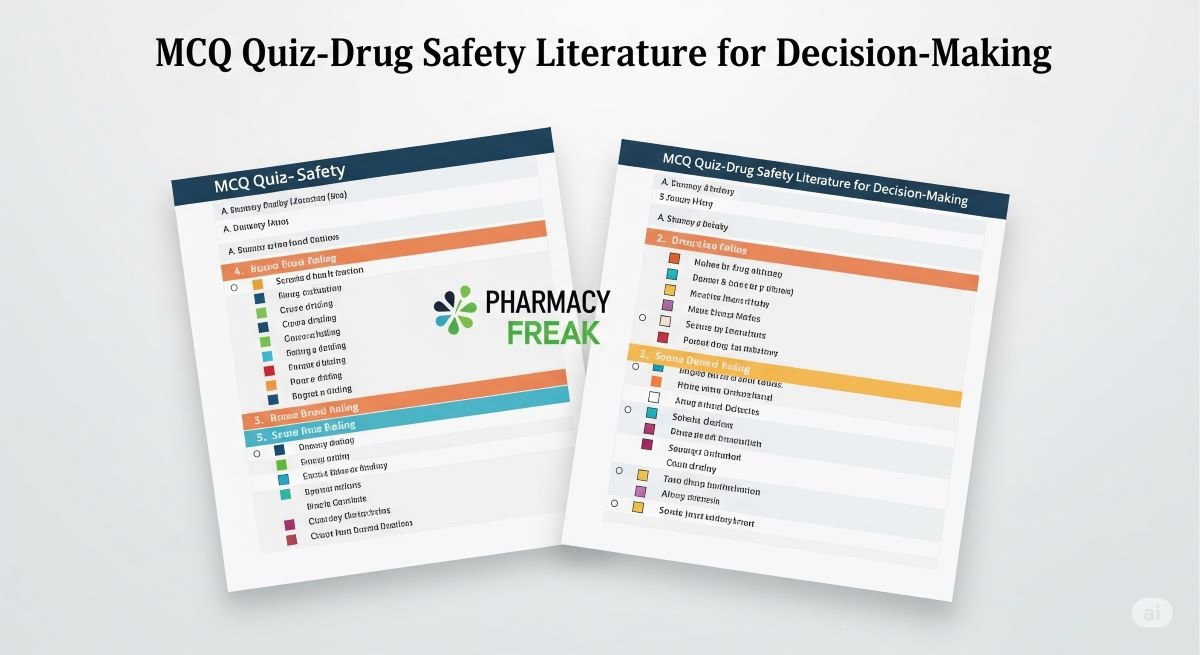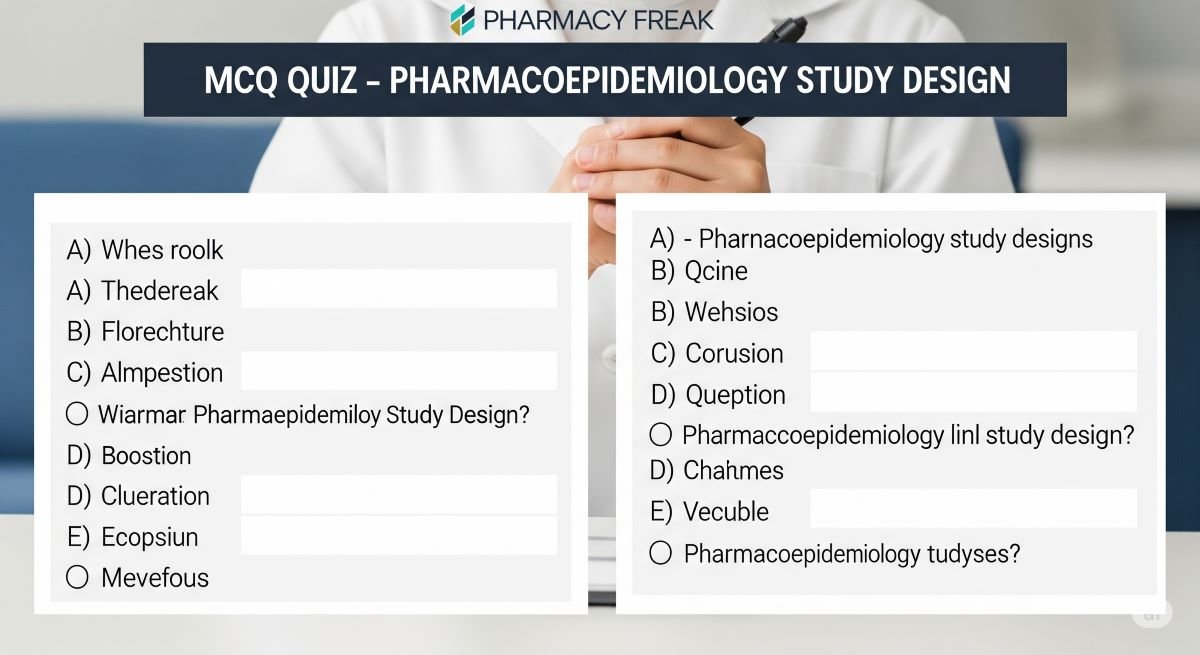

Pharmacoepidemiology and Drug Safety MCQs
Master the Essentials of Drug Safety and Population Health
Pharmacoepidemiology and drug safety shape how medicines are used and monitored in real life—not just in clinical trials, but in entire populations. If you want to ace MCQs on this topic, you’ll need to connect scientific principles with practical, real-world judgment. This guide breaks down everything you need to know, so you can answer with confidence and sharpen your skills for the pharmacy profession.
What Is Pharmacoepidemiology and Drug Safety?
Pharmacoepidemiology is the study of how drugs affect large groups of people. It combines pharmacy, medicine, and public health to track medication use, spot trends, and respond to safety concerns. Drug safety focuses on preventing harm, spotting side effects, and managing risks for both individual patients and society at large.
Together, these fields help pharmacists:
Monitor drug effectiveness and adverse effects
Investigate patterns in medication use
Identify and minimize medication errors
Protect public health through safe medication practices
What Do MCQs in This Subject Cover?
Core Areas to Expect
Study Designs in Pharmacoepidemiology:
Questions often test your understanding of cohort, case-control, cross-sectional, and randomized controlled study designs—and when to use each one.Data Sources and Measures:
MCQs may ask about the strengths and limitations of using large health databases, prescription registries, or surveys to track medication outcomes.Drug Safety Monitoring:
Be ready for questions on pharmacovigilance, adverse drug reaction (ADR) reporting, risk management plans, and the roles of regulatory agencies.Bias and Confounding:
Expect scenarios where you must spot sources of bias, confounding factors, and ways to ensure study validity.Interpreting Evidence:
Questions might challenge you to analyze study results, interpret epidemiological data, or apply findings to clinical practice.Ethical and Legal Issues:
You may see MCQs about patient privacy, informed consent, and the ethics of large-scale drug studies.
Why These Questions Matter
Here’s the bottom line: Every pharmacist is responsible for more than just dispensing drugs—they help protect the public by recognizing risks, reporting problems, and making data-driven decisions. MCQs on pharmacoepidemiology and drug safety test your readiness to step into that bigger role. The more you practice, the more comfortable you’ll become with real-world, high-stakes problem solving.
How to Tackle These MCQs
1. Start With the Study Design.
For each scenario, ask yourself: what kind of study is this? Knowing the basics can quickly narrow your answer choices.
2. Focus on Patient Safety.
If a question involves a possible adverse effect or medication error, think first about what will keep patients safest.
3. Read for Clues About Bias.
Watch for wording that hints at confounding variables, selection bias, or incomplete data.
4. Remember the Big Picture.
Don’t just memorize facts—think about how pharmacoepidemiology informs guidelines, policies, and daily practice in the pharmacy.
Strengthen Your Drug Safety Skills
Success in pharmacoepidemiology and drug safety MCQs is about more than getting good grades. It’s about building confidence in your ability to evaluate evidence, spot risks, and keep patients safe in a complex healthcare world. Use this page to reinforce what matters most—real-world application, clear thinking, and a genuine commitment to patient health.
